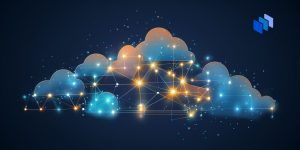What Does Blade Server Mean?
A blade server is a compact, self-contained server that consists of core processing components that fit into an enclosure with other blade servers. A single blade may consist of hot-plug hard-drives, memory, network cards, input/output cards and integrated lights-out remote management. The modular design of the blade server helps to optimize server performance and reduce energy costs.
Techopedia Explains Blade Server
Blade servers are designed to overcome the space and energy restrictions of a typical data center environment. The blade enclosure, also known as chassis, caters to the power, cooling, network connectivity and management needs of each blade. Each blade server in an enclosure may be dedicated to a single application. A blade server can be used for tasks such as:
- File sharing
- Database and application hosting
- SSL encryption of Web communication
- Hosting virtual server platforms
- Streaming audio and video content
The components of a blade may vary depending on the manufacturer. Blade servers offer increased resiliency, efficiency, dynamic load handling and scalability. A blade enclosure pools, shares and optimizes power and cooling requirements across all the blade servers, resulting in multiple blades in a typical rack space.
Some of the benefits of blade servers include:
- Reduced energy costs
- Reduced power and cooling expenses
- Space savings
- Reduced cabling
- Redundancy
- Increased storage capacity
- Reduced data center footprint
- Minimum administration
- Low total cost of ownership
Blade servers continue to evolve as a powerful computing solution, offering improvements in terms of modularity, performance and consolidation.





